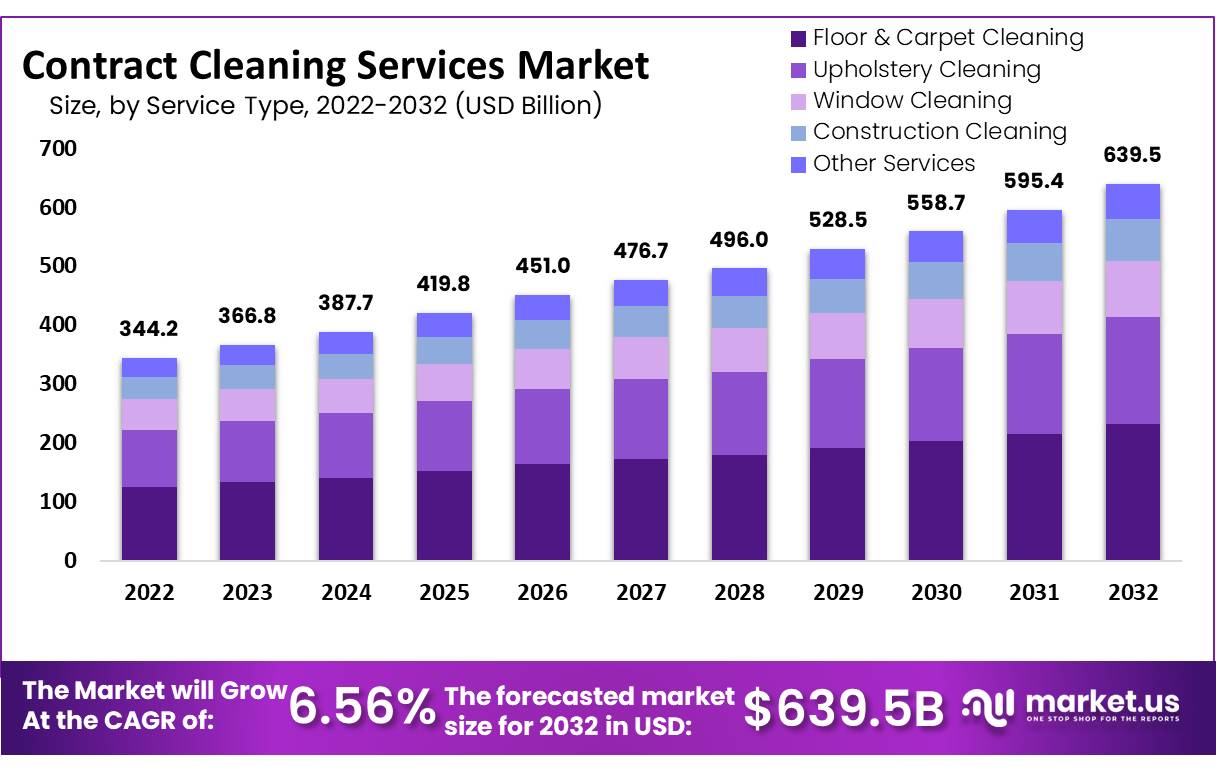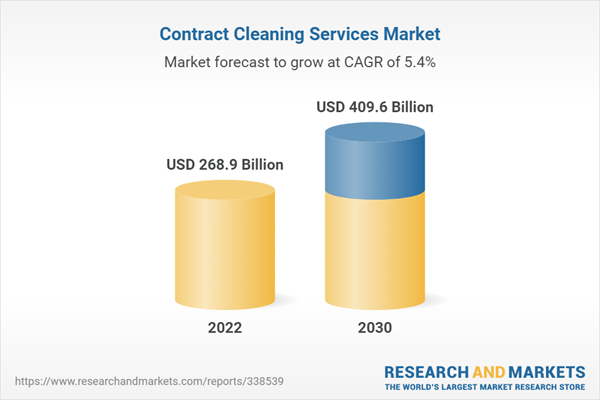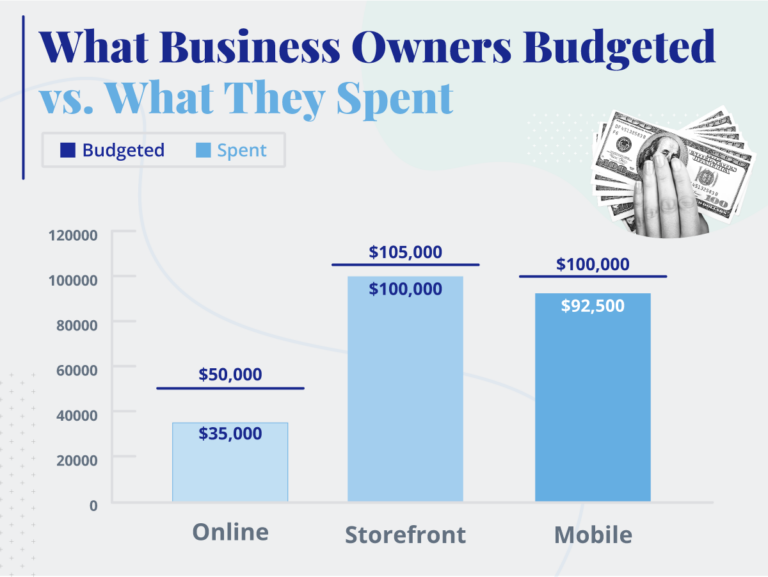
Updated: April 12, 2024
BusinessGuru.co is reader-supported. When you buy through links on my site, we may earn an affiliate commission. Learn more
Are you looking for a lucrative business opportunity in the real estate industry? Look no further than foreclosure cleaning! With the U.S. cleanouts market expected to reach $22.8 billion by 2026, now is the perfect time to start your own foreclosure cleaning business.

Imagine the satisfaction of helping potential buyers, previous owners, and real estate agents prepare foreclosed homes for sale while building a profitable venture. By providing professional cleaning and maintenance services, you can play a crucial role in the real estate market’s recovery process.
In this comprehensive guide, we’ll walk you through how to start a foreclosure cleaning business. Topics include market research, competitive analysis, registering an EIN, obtaining business insurance, forming a legal business entity, and more.
Before diving into the foreclosure cleaning business, it’s essential to conduct thorough market research to understand the industry’s potential and make informed decisions. Market research offers insight into your target market, trends in the foreclosure business market, and other elements of your business plan.

The foreclosure cleaning market presents a promising opportunity for entrepreneurs looking to enter the cleaning industry. With proper business planning and appropriate research on cleaning and trash removal methods, there is potential for a new business to thrive.
When starting a foreclosure cleaning business, it’s crucial to analyze your competition to identify opportunities, differentiate your services, and develop effective strategies. Begin by researching local cleaning companies that offer foreclosure cleaning services.
Use online directories like Yelp, Google Maps, and HomeAdvisor to find competitors in your area. Pay attention to their service offerings, pricing, and customer reviews to gauge their strengths and weaknesses.
Evaluate your competitors’ online presence. Visit their websites and social media profiles to assess the quality of their content, user experience, and engagement with their audience. Use tools like SEMrush or Ahrefs to analyze their search engine rankings, backlink profiles, and targeted keywords.
If applicable, visit your competitors’ physical locations to observe their operations, customer service, and overall presentation. Take note of their branding, equipment, and any unique features that set them apart.
Consider conducting surveys or interviews with potential customers, such as real estate agents, property managers, and banks. Analyze your competitors’ pricing structures and service packages. While it’s essential to remain competitive, avoid engaging in price wars that could undermine your profitability.
When starting a foreclosure cleaning business, it’s essential to understand the initial startup costs and ongoing expenses to create a realistic budget and ensure the venture’s financial viability.

Startup costs for a foreclosure cleaning business can range from $13,050 to $40,000, depending on factors such as location, scale, and equipment quality.
Ongoing monthly costs for a foreclosure cleaning business can range from $1,850 to $5,500, not including labor expenses. Annually, this translates to $22,200 to $66,000, plus labor costs.
When starting a foreclosure cleaning business, selecting the appropriate legal entity is crucial for protecting your assets, limiting liability, and ensuring the smooth operation of your venture. There are four main types of business entities to consider.
A Sole Proprietorship is the simplest and most common form of business entity. As a sole proprietor, you have complete control over your foreclosure cleaning business, and all profits are yours. You are also personally responsible for all debts and liabilities incurred by the business.
Partnerships involve two or more individuals who share ownership of the foreclosure cleaning business. Profits and losses are divided among the partners according to their agreement. Like a Sole Proprietorship, partners are personally liable for the business’s debts and obligations.
A Limited Liability Company (LLC) offers the best of both worlds for a foreclosure cleaning business. An LLC provides personal liability protection, meaning that your assets are typically shielded from the business’s debts and legal issues. An LLC also offers flexibility in management structure and taxation.
A Corporation is a separate legal entity owned by shareholders. While a Corporation offers personal liability protection, it involves more complex formation and maintenance requirements compared to an LLC. Corporations are subject to double taxation, meaning that the business pays taxes on its profits, and shareholders pay taxes on dividends received.
When starting a foreclosure cleaning business, one of the essential steps is to register your business for taxes. A crucial part of this process is obtaining an Employer Identification Number (EIN), also known as a Federal Employer Identification Number (FEIN).
An EIN is a unique nine-digit number assigned by the Internal Revenue Service (IRS) to identify your business for tax purposes. Even if you don’t plan on hiring employees immediately, obtaining an EIN is still important.
An EIN is required for various business activities, such as opening a business bank account, applying for business licenses and permits, and filing tax returns. Additionally, having an EIN can help protect your personal Social Security number from potential identity theft.
Applying for an EIN is a straightforward process that can be done online through the IRS website. To get started, visit the IRS EIN application page. The application process is free, and you can complete it in a few simple steps:
In addition to obtaining an EIN, it’s crucial to understand your state’s requirements for sales tax. As a foreclosure cleaning business, you may be required to collect and remit sales tax on your services. Each state has its own rules and regulations regarding sales tax, so it’s essential to research your state’s specific requirements.
To register for sales tax, visit your state’s Department of Revenue or Taxation website. You may need to complete an application and provide your business information, including your EIN. Some states may require a small registration fee, typically ranging from $10 to $100.
Setting up proper accounting practices is crucial for the success and longevity of your foreclosure cleaning business. Accurate financial records not only help you make informed business decisions but also ensure compliance with tax laws and regulations.
To streamline your accounting processes, consider investing in accounting software like QuickBooks. Quickbooks automates many aspects of accounting, saving you time and reducing the risk of human error. By integrating your bank accounts and credit cards with the software, transactions are automatically imported.
Working with a professional accountant can provide additional benefits. An accountant can offer a range of services, including bookkeeping, financial statement preparation, tax planning, and compliance. They can help you navigate complex tax laws, and identify tax deductions specific to your foreclosure cleaning business.
To maintain clear financial records and avoid potential issues with the IRS, it’s essential to separate your personal and business finances. Opening a dedicated business bank account is a simple yet effective way to keep your financial affairs organized. This separation of finances also helps protect your assets.
Consider applying for a business credit card. A business credit card can help you manage cash flow, track expenses, and build your company’s credit history. Unlike personal credit cards, business credit card limits are often determined by factors such as your business’s revenue, credit history, and overall financial health.
Obtaining the necessary licenses and permits is a critical step when starting a foreclosure cleaning business. Find federal license information through the U.S. Small Business Administration. The SBA also offers a local search tool for state and city requirements.
One of the most important licenses for a foreclosure cleaning business is a general business license. This license is issued by your local city or county government and grants you the legal right to operate your business within their jurisdiction. Requirements for obtaining a general business license vary by location.
Your foreclosure cleaning business may need to obtain a specialty cleaning license. Some states, such as Florida and California, require specific licenses for businesses that handle biohazardous waste, such as crime scene or trauma cleanup. These licenses ensure that your business follows proper safety protocols.
Another important permit to consider is a hazardous materials transportation permit. If your foreclosure cleaning business involves transporting hazardous waste, such as cleaning chemicals or biohazardous materials, you may need to obtain a special permit from the Department of Transportation.
Depending on the scope of your foreclosure cleaning business, you may also need to acquire a contractor’s license. Some states require businesses that perform work exceeding a certain dollar amount to be licensed as contractors.
It’s also crucial to research and obtain any necessary environmental permits. Foreclosure cleaning often involves handling and disposing of various types of waste, including cleaning chemicals, paint, and other potentially hazardous materials.
Business insurance is a critical component of running a successful foreclosure cleanup business. It provides financial protection against various risks and liabilities that can arise during your operations. Without adequate insurance coverage, your business could face significant financial losses and legal disputes.
One of the primary reasons to obtain business insurance is to protect your company from potential lawsuits. As a foreclosure cleaning business, you and your employees will be working on properties that may have hazardous conditions, such as mold, biohazardous waste, or structural damage.
If a client or third party suffers an injury or property damage due to your work, they may seek legal action against your business. Business insurance, such as general liability coverage, can help cover the costs of legal defense and any settlements or judgments awarded against you.
Here are three scenarios where not having business insurance could severely impact your foreclosure cleaning business:
To protect your foreclosure cleaning business from these and other risks, it’s essential to obtain appropriate business insurance. Here’s a step-by-step process to help you get insured:
Assess your business risks: Identify the specific risks associated with your foreclosure cleaning operations, such as property damage, bodily injury, and professional liability.
Determine the types of insurance you need: Common insurance policies for foreclosure cleaning businesses include general liability, commercial property, workers’ compensation, and commercial auto insurance.
Shop around for insurance quotes: Contact multiple insurance providers and compare their coverage options and premiums. Be sure to provide detailed information about your business operations to receive accurate quotes.
Review and purchase your insurance policies: Carefully review the terms and conditions of each insurance policy before making a purchase. Pay attention to coverage limits, deductibles, and exclusions.
Having a dedicated office space can be highly beneficial for a foreclosure cleaning business, even if most of the work is conducted on-site at various properties. An office provides a central location for administrative tasks, storing equipment and supplies, and meeting with clients or employees.
For many small foreclosure cleaning businesses, a home office can be a cost-effective and convenient option. If you have a spare room or dedicated space within your home, you can set up a functional office without incurring additional rent or lease expenses. A home office is suitable for businesses with a limited budget.
Coworking spaces, such as WeWork, offer a flexible and affordable alternative to traditional office rentals. These shared workspaces provide amenities like high-speed internet, printing services, and meeting rooms, which can be particularly useful for foreclosure cleaning businesses that need a professional setting.
A retail office may not be the most common choice for a foreclosure cleaning business, but it could be appropriate if you plan to offer additional services or products related to home maintenance or renovation. A storefront can provide a visible presence in the community and make it easier for potential clients to find and contact you
When starting a foreclosure cleaning business, sourcing the right materials and equipment is crucial for providing high-quality services and ensuring the safety of your team. The required equipment may include personal protective gear (gloves, masks, safety glasses), and cleaning supplies.
Purchasing new equipment ensures that you have reliable, high-quality tools that are covered by manufacturer warranties. This option is ideal if you have a larger budget and plan to use the equipment for an extended period. Try Amazon, Uline, or Jon-Don to get started.
If you have a limited budget or only need equipment for a short period, buying used can be a cost-effective solution. You can find used cleaning equipment on online marketplaces like Facebook Marketplace, eBay, Craigslist, or Letgo. Local janitorial supply stores may also offer used equipment for sale.
Renting equipment can be a smart choice if you have a one-time project or need specialized tools for a specific job. This option allows you to access high-quality equipment without a long-term investment. You can rent cleaning equipment from local rental companies.
For businesses that need a consistent supply of equipment but don’t want to invest in purchasing outright, leasing can be an attractive option. Leasing allows you to spread the cost of equipment over an extended period, which can help manage cash flow.
Establishing a strong brand is crucial for any foreclosure cleaning business looking to stand out in the industry and attract clients. A well-defined brand helps create a memorable and trustworthy image, making it easier for potential customers to recognize and choose your services over competitors.
Having a dedicated business phone number is essential for maintaining a professional image and ensuring that clients can easily reach you. A service like Ring Central offers virtual phone systems that allow you to separate your personal and business calls, and provide a professional greeting.
A well-designed logo is the centerpiece of your brand identity. Services like Looka offer AI-powered logo creation tools that can help you design a professional logo quickly and affordably. Once you have your logo, ensure that all your brand assets, such as your website, business cards, and marketing materials.
Business cards are a must-have for any foreclosure cleaning business owner. They provide a tangible way to share your contact information and leave a lasting impression on potential clients. Services like Vistaprint offer affordable, high-quality business card and signage printing options.
In today’s digital age, having a strong online presence is crucial for any business. The first step is to purchase a domain name that reflects your brand and is easy for potential clients to remember. A service like Namecheap offers affordable domain registration and provides a user-friendly interface.
Once you have your domain name, it’s time to build your website. Creating your website using a platform like Wix can be cost-effective and gives you full control over the design and content. Hiring a freelance web designer from a platform like Fiverr can save you time and ensure a polished, professional result.
Joining associations and groups is a powerful way to network with others in the foreclosure cleaning industry, gain valuable insights, and grow your business. These connections can provide you with trade secrets, best practices, and support from experienced professionals.
To find relevant associations in your area, start by searching online for “foreclosure cleaning associations” or “property preservation associations” along with your city or state. For example, the American House Cleaners Association is a well-known organization.
Regularly attending meetups and tradeshows is another effective way to connect with others in the foreclosure cleaning industry and expand your professional network. To find relevant meetups in your area, use a platform like Meetup, which allows you to search for groups and events.
Facebook groups have become a valuable resource for professionals in various industries, including foreclosure cleaning. Some groups to check out include Professional House Cleaners Support and Cleaning Business Owners USA.
Marketing is the lifeblood of any business, and a foreclosure cleaning company is no exception. To grow and succeed in this competitive industry, entrepreneurs must develop and implement effective marketing strategies that attract new clients.
When starting a foreclosure cleaning business, your network is one of the most valuable assets you have. Reach out to friends, family, and professional contacts who may know of real estate agents, property managers, or banks that could benefit from your services.
To further expand your reach and attract new clients, consider implementing the following digital marketing strategies:
While digital marketing is essential in today’s business landscape, traditional marketing methods can still be effective for foreclosure cleaning businesses, particularly when targeting local clients. Consider the following traditional marketing ideas:
While traditional marketing methods may not always provide the highest ROI compared to digital strategies, they can still be effective in generating local brand awareness and reaching potential clients who may not be actively searching for foreclosure cleaning services online.
In the foreclosure cleaning business, customer service is paramount to success. Your primary clients, such as banks, real estate agents, and property managers, rely on your services to quickly and efficiently prepare foreclosed properties for sale or rental.

Consistently delivering high-quality service can lead to repeat business from satisfied clients. Banks and property managers often handle multiple foreclosed properties and are more likely to continue working with a cleaning company that has proven itself reliable and efficient.
To excel in customer service, focus on clear communication, punctuality, and a willingness to go above and beyond. Keep your clients informed about project timelines, potential issues, and any additional services you can offer to make their jobs easier.
Be responsive to their inquiries and feedback, and always strive to exceed their expectations. By putting your customers first, you’ll create a loyal client base that will help your foreclosure cleaning business thrive through referrals and repeat business.